TV's Maggie Philbin encourages teens to study engineering
- Published
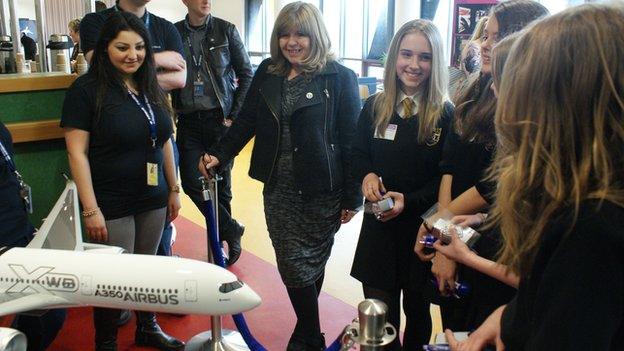
Maggie Philbin with Airbus workers and pupils from Castell Alun school in Hope, near Wrexham
Work is needed to encourage more youngsters into an engineering career, says Airbus' head of manufacturing at the wingmaker's factory in Flintshire.
Martin Evans was speaking at an event to showcase the industry to 200 high school pupils from around the region before they select their GCSEs.
Teen Tech was held at Wrexham's Glyndwr University on Wednesday.
It was organised by TV's Maggie Philbin who founded the event to address perceptions about certain careers.
She said girls "self eliminate" themselves from engineering careers at an early age because they wrongly think it meant being "knee deep in axle grease" all day.
"This is the igniting spark," she said.
Ms Philbin explained how such events lift the lid on industries and careers behind devices like laptops and mobile phones where their moving parts are not visible.
"You can't aim for something you haven't seen," she said.
The former Tomorrow's World presenter said research from three previous Teen Tech events at Swansea and Wrexham showed how 77% of 900 pupils said they were interested in science and engineering after speaking with industry experts compared with 53% at the beginning of the day.
Mr Evans, a former Airbus apprentice, said the company's sponsorship of event which featured firms like Samsung and Toyota was to "encourage the next generation of young engineers".
"We still have a job of work to do to sell engineering as a job," he said.
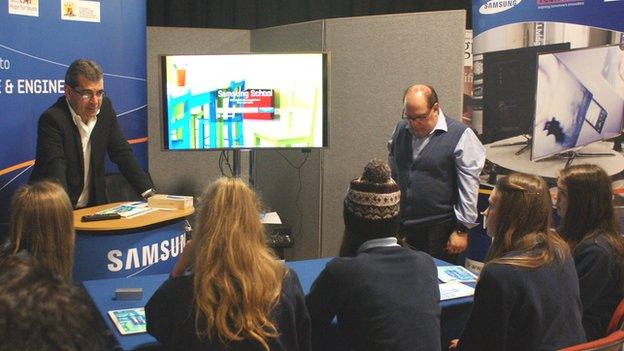
Bobble hats and technology... children learn about the world of work at Samsung
Airbus employs about 400 apprentices at its factories at Broughton and Filton, near Bristol.
Among them is Nathan Wong, 19, who is studying engineering at Glyndwr University.
He said the Teen Tech event opened pupils' eyes to wider possibilities and showed how studying stem subjects like maths and science can influence their future careers.
"You don't get to see what is happening outside of school... so these events put the things together," he said.
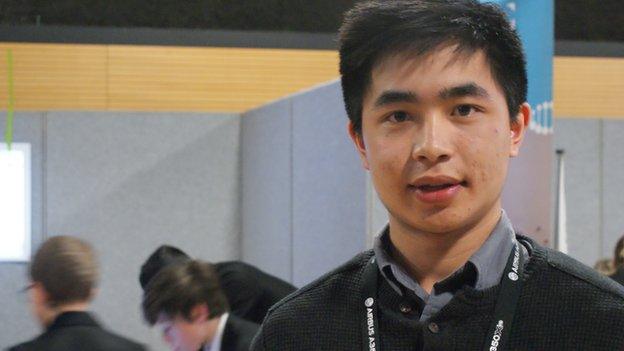
Nathan Wong said there were more pros than cons comparing an apprenticeship with student life
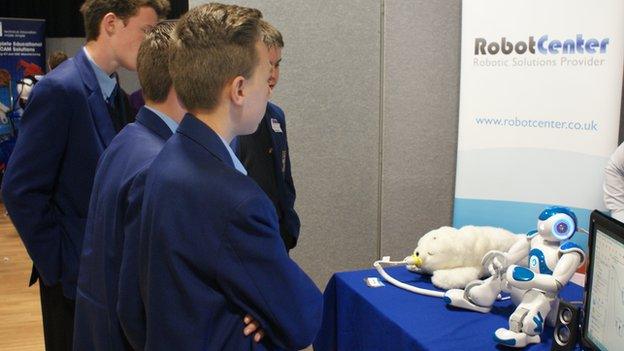
Talking robot... This little fella explained directly to pupils about all his latest features
Pupil Katie, 13, from Castell Alun school, Hope, near Wrexham, enjoyed learning about forensic science.
"It's the way you are able to find out so much from one little detail," she said.
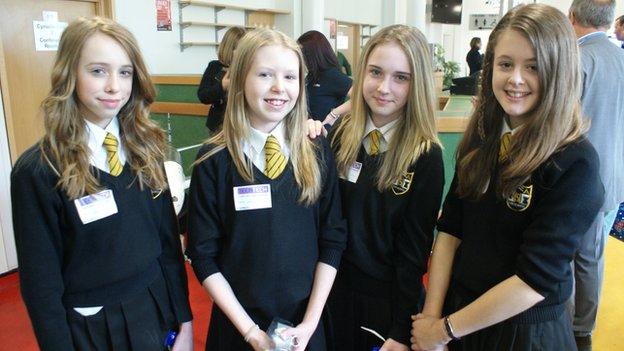
Castell Alun pupils Nia, Josie, Lauren and Katie earned places at the event due to good school work in technology
- Published25 February 2015

- Published16 May 2014
